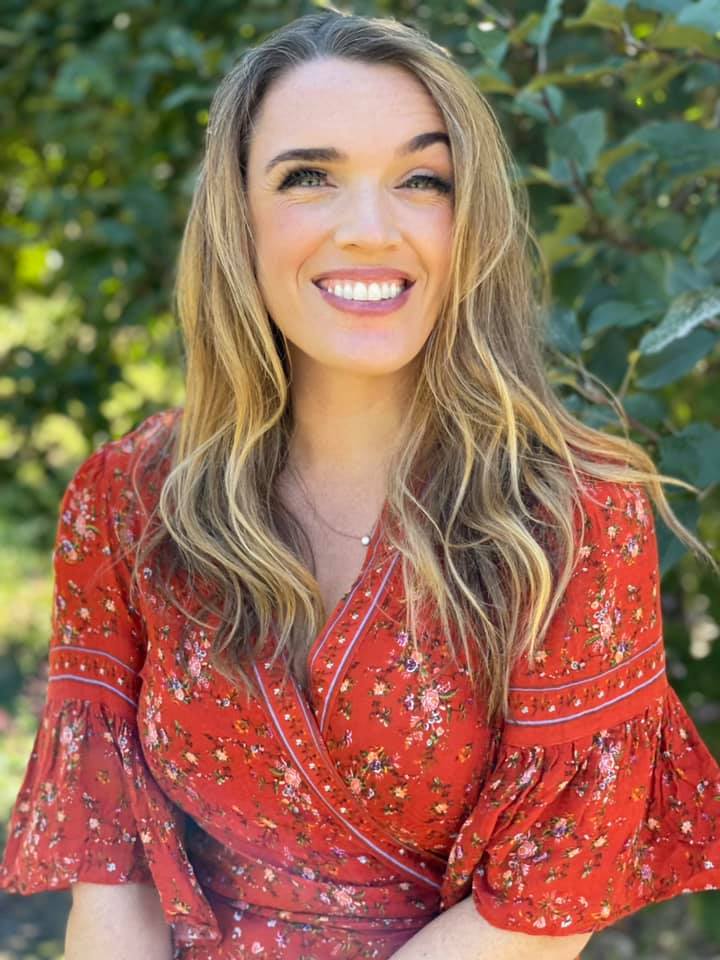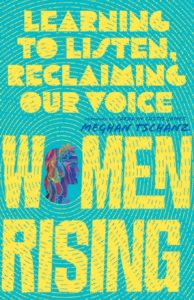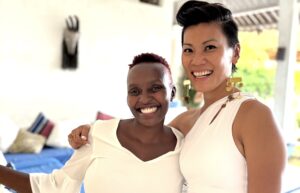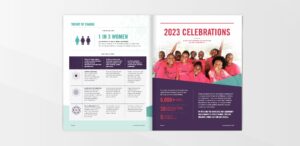Women are a part of a diverse sisterhood. We each move through the world in a unique way but still share a communal identity, proclaiming a unified message of strength in the face of oppression. This Women’s History Month, we are unifying the creative voices of women ending sexual violence.
Meghan Tschanz is the author of “Women Rising”, host of the “Faith and Feminism” podcast, and a proud Hope Circle member. Here are some important insights she has learned for those looking to advocate for women in their community.
What is your greatest learning in your work to platform the voices of women?
My greatest learning in my work to platform the voices of women, is to learn first the ways that I have been complicit in systems that have held them back, such as in patriarchy and white supremacy. Coming from a White Evangelical background, I was taught a worldview on a very individualistic level. I was taught that one’s personal motivation determined whether or not they were successful, healthy, or had the resources they needed. But I was taught wrong.
By listening to the stories of survivors, I began to see the theme of patriarchy mentioned again and again. I realized that the reason so many women have experienced sexual violence was not because of any personal failing, compromising situation, or even their wardrobe. It had to do with the fact that they were living in a society where their bodies were treated as objects and their consent didn’t matter. As a survivor of sexual violence myself, this helped combat the lie that my assaults had anything to do with me.
Through this realization, I came to terms with how I had unknowingly supported the patriarchy. For years, I had abided by conservative teachings that women were not to speak, lead, or preach, and were to be led by men. I didn’t realize that the power differentials created when you give men enormous power–taken from women–prime the ground for abuse. As psychoanalyst Lyn Yonack says, “When someone rapes, assaults, or harasses, the motivation stems from the perpetrator’s need for dominance and control.” Giving up your power as a woman only serves to hold up an abusive system of patriarchy.
HOW HAS THE IMPACT OF FREELY IN HOPE RESONATED WITH YOUR WORK?
Freely in Hope is one of the few organizations that is led by survivors who are combatting sexual violence. In my past work as a missionary, I have worked with organizations who claimed to center and value survivors, but in reality, did not. The stories and needs of survivors were not taken seriously, and at times their choices were just as limited in a “safe-house” as they were when being sexually exploited on the streets. Freely in Hope operates differently in the way that they empower and center survivors.

Why is your Hope Circle membership important to you?
My Hope Circle membership is important because I believe that as advocates, we should put our money where our mouth is. If we truly care about empowering survivors, we should support them holistically. The fact that I can provide tuition, counseling, mentorship, safe housing, healthcare, legal aid, and community support with my donation means that they are taking care of the whole person– and that’s important to me.
What inspired the writing of “Women Rising: Learning to Listen, Reclaiming Our Voice”?
I wrote “Women Rising” because I felt I had a story to tell, one that began in a place of white privilege and patriarchy and ended in a place of learning to repent and do better. It’s my story of becoming a missionary to work with sexually exploited women, and through listening to their stories finding that the answers I had been given in church didn’t seem to work against the injustice and oppression I saw. It’s the story of seeing the symptoms of patriarchy praised and espoused by my churches growing up–and the systems and people who exploited women. “Godly patriarchy” wasn’t God’s plan at all. In fact, it was hurting women across the globe. “Women Rising” is my story of reconciling this, repenting, and learning to do better.
What does it mean to “reclaim feminism”?
In my context, it means taking back the word “feminism” from the white evangelical church. They used this word to demonize women who fought for their rights. Growing up, feminism held a stigma, and the worst thing I could do as a woman was become one. As I grew older and educated myself on what feminism was, which is “the advocacy of women’s rights on the basis of the equality of the sexes”, I realized that, not only was there nothing wrong with feminism, but it was actually a Christian value.
Feminism is a value we see Jesus Himself embody. In an extremely patriarchal culture, Jesus entrusted women first with the gospel message. Women were also the first to witness the resurrection, and Jesus was so bold to include women like Mary Magdalene in His inner circle. In today’s culture, it might be easy to skim over how Jesus fought and resisted the patriarchy numerous times by defending, protecting, and including women in his ranks, but we should be intentional in including this narrative.
In the story of Mary and Martha (Luke 10:38-42) we see Jesus take a hard stance against patriarchy. While Martha is doing what a “good” woman should–preparing the home with domestic tasks–Mary chooses instead to sit at the feet of Jesus. This is doubly offensive: not only is Mary neglecting her patriarchal role to care for the home, she is sitting at the feet of a rabbi, which in their culture meant you wanted to train to become a rabbi yourself. Mary sitting at the feet of Jesus breaks the strict cultural roles that kept women in the home and prevented them from learning and teaching.
Martha is offended by Mary’s act of rebellion and says to Jesus, “Lord, don’t you care that my sister has left me to do the work by myself? Tell her to help me!” Jesus responds by saying, “Mary has chosen what is better, and it will not be taken away from her.” In that one sentence, Jesus encourages and praises Mary for breaking the rules. This is truly revolutionary, revealing what Jesus thought of the “gender roles” of the time.
Feminism and the fight for women’s rights are Christian concepts, no matter what you’ve been told.

How can readers best advocate for the rights of women on a daily basis?
First, look at your own community; your home, your faith arenas, your educational and career spaces. Then, ask yourself how that space treats women. Are women able to make decisions without being belittled? Are there jokes made about women belonging in the kitchen? Do women feel safe coming forward after experiencing sexual violence? Reflect on these questions honestly, and then brainstorm some small steps that you can do to help steer the community in a new direction. Perhaps just start talking! If you’re a woman you may not be used to advocating for yourself–but starting there is a good place to start. I think the most sustainable and impactful changes happen in our own community, so starting with your circle of influence is a great first step.
Join Hope Circle with Meghan!
Become a new Hope Circle member by April 30 and we’ll send you a gift box of limited editing Freely in Hope swag and a free copy of Women Rising!





